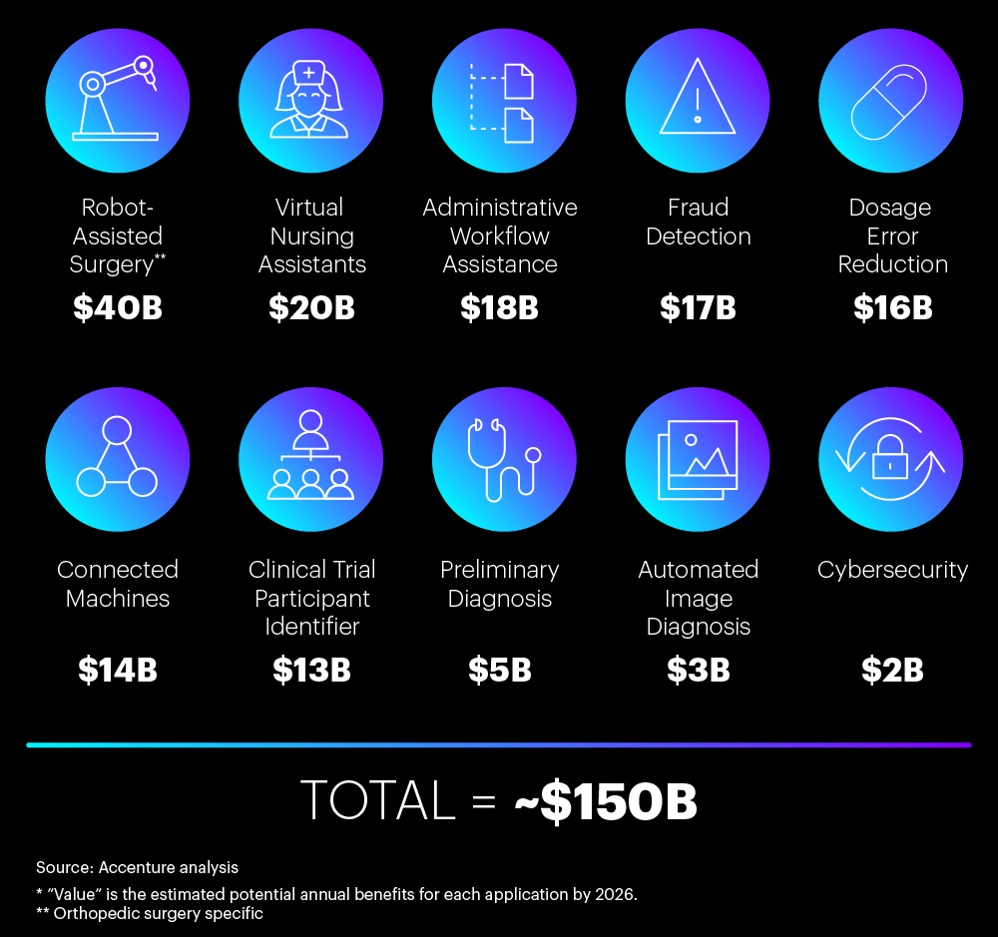Artificial Intelligence, AI, can help drive the Triple Aim in healthcare, reducing cost, improving quality, and expanding access, according to Artificial Intelligence: Healthcare’s New Nervous System from Accenture.
Acquisitions of AI developers in health will be fast-paced, growing at a compound annual growth rate of 40% – “explosive” in the word of Accenture – moving from $600 mm in 2014 to $6.6 billion in 2021.
What these AI startups will do is to enable machines to sense, comprehend, act and learn, Accenture foresees, to augment administrative and clinical tasks which could free up healthcare labor (say, doctors, other clinicians, and accountants) to work at their highest-and-best-use.
The most impactful AI-driven application would be robot-assisted surgery, generating $40 billion of value, annually, by 2026. Next in AI-health value-creation include virtual nursing assistants (valued at $20 bn annually), administrative workflow support ($18 bn), fraud detection ($17bn), and medication error reduction ($16 bn).

Health Populi’s Hot Points: AI is a relatively new-new thing, but it’s getting a lot of attention and coverage beyond wonky health-tech media. Newsweek pronounced AI as a “cure for America’s sick-care system” in the magazine last month, highlighting many examples where algorithms, big data, and cognitive computing could help stem the cost-curve in US healthcare. Addressing diabetes care, mining electronic health records databases, and capitalizing on what’s known about genomes were some specific areas Newsweek identified.
We should be mindful of the history of medical tech innovation, and how the adoption of new-new healthcare things has often resulted in disparities. This WIRED UK interview with the World Health Organization’s Director-General warns of the potential for nation-to-nation health disparities when it comes to uneven AI adoption. We don’t have to go so far globally to imagine that AI could also result in digital health divides in the U.S.
That would be ironic and costly, indeed, given the nature of the burden of chronic disease in America which is largely driven by social determinants of health. AI can go a long way to identifying gaps in health citizens’ access to these contributors to health (such as food deserts, sick buildings, financial ill health). Will AI applications be deployed in these areas along with healthcare system factors? That’s a huge opportunity that would support Newsweek’s bullish forecast for AI as a cure for American healthcare.
The post Artificial Intelligence, AI, Is Becoming the New Operating System in Health – Accenture appeared first on HealthPopuli.com.
Article source:Health Populi
No comments:
Post a Comment